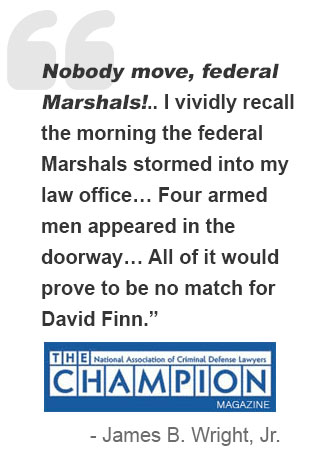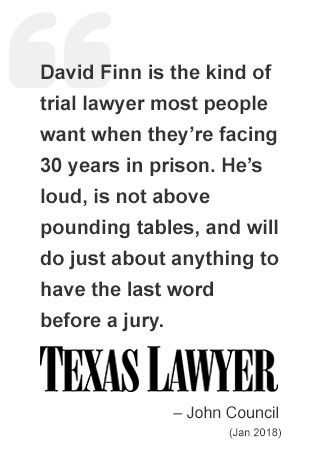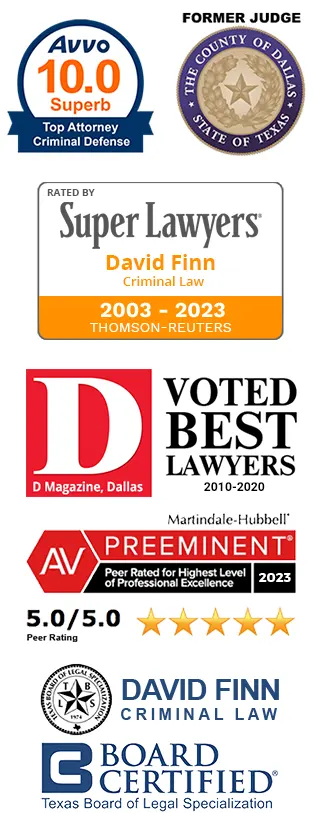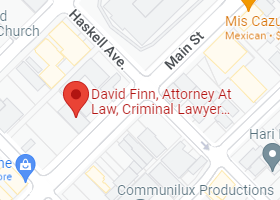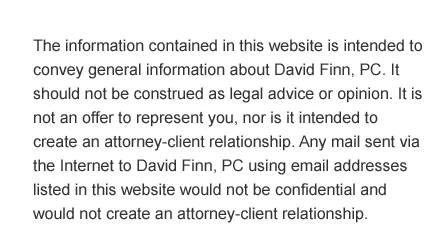


Texas Law re: Occupational Drivers License
SUBCHAPTER L. OCCUPATIONAL LICENSE
§ 521.241. DEFINITIONS. In this subchapter:
(1) “Essential need” means a need of a person for the
operation of a motor vehicle:
(A) in the performance of an occupation or trade
or for transportation to and from the place at which the person
practices the person’s occupation or trade;
(B) for transportation to and from an educational
facility in which the person is enrolled; or
(C) in the performance of essential household
duties.
(2) “Ignition interlock device” means a device that
uses a deep-lung breath analysis mechanism to make impractical the
operation of a motor vehicle if ethyl alcohol is detected in the
breath of the operator of the vehicle.
Acts 1995, 74th Leg., ch. 165, § 1, eff. Sept. 1, 1995.
§ 521.242. PETITION. (a) A person whose license has
been suspended for a cause other than a physical or mental
disability or impairment or a conviction under Section 49.04, Penal
Code, may apply for an occupational license by filing a verified
petition with the clerk of the county court or district court with
jurisdiction in the county in which:
(1) the person resides; or
(2) the offense occurred for which the license was
suspended.
(b) A person may apply for an occupational license by filing
a verified petition only with the clerk of the county court or
district court in which the person was convicted if:
(1) the person’s license has been automatically
suspended or canceled under this chapter for a conviction of an
offense under the laws of this state; and
(2) the person has not been issued, in the 10 years
preceding the date of the filing of the petition, more than one
occupational license after a conviction under the laws of this
state.
(c) A petition filed under this section must set forth in
detail the person’s essential need.
(d) A petition filed under Subsection (b) must state that
the petitioner was convicted in that court for an offense under the
laws of this state.
(e) The clerk of the court shall file the petition as in any
other civil matter.
(f) A court may not grant an occupational license for the
operation of a commercial motor vehicle to which Chapter 522
applies.
Acts 1995, 74th Leg., ch. 165, § 1, eff. Sept. 1, 1995. Amended
by Acts 1997, 75th Leg., ch. 165, § 30.83(a), eff. Sept. 1, 1997;
Acts 1997, 75th Leg., ch. 1289, § 1, 2, eff. Sept. 1, 1997; Acts
2001, 77th Leg., ch. 941, § 1, eff. Sept. 1, 2001.
§ 521.243. NOTICE TO STATE; PRESENTATION OF EVIDENCE.
(a) The clerk of the court shall send by certified mail to the
attorney representing the state a copy of the petition and notice of
the hearing if the petitioner’s license was suspended following a
conviction for:
(1) an offense under Section 19.05, 49.04, 49.07, or
49.08, Penal Code; or
(2) an offense to which Section 521.342 applies.
(b) A person who receives a copy of a petition under
Subsection (a) may attend the hearing and may present evidence at
the hearing against granting the petition.
Acts 1995, 74th Leg., ch. 165, § 1, eff. Sept. 1, 1995.
§ 521.244. HEARING; ORDER; DETERMINATION OF ESSENTIAL
NEED. (a) The judge who hears the petition shall sign an order
finding whether an essential need exists.
(b) In determining whether an essential need exists, the
judge shall consider:
(1) the petitioner’s driving record; and
(2) any evidence presented by a person under Section
521.243(b).
(c) If the judge finds that there is an essential need, the
judge also, as part of the order, shall:
(1) determine the actual need of the petitioner to
operate a motor vehicle; and
(2) require the petitioner to provide evidence of
financial responsibility in accordance with Chapter 601.
(d) Except as provided by Section 521.243(b), the hearing on
the petition may be ex parte.
Acts 1995, 74th Leg., ch. 165, § 1, eff. Sept. 1, 1995.
§ 521.245. REQUIRED COUNSELING. (a) If the
petitioner’s license has been suspended under Chapter 524 or 724,
the court shall require the petitioner to attend a program approved
by the court that is designed to provide counseling and
rehabilitation services to persons for alcohol dependence. This
requirement shall be stated in the order granting the occupational
license.
(b) The program required under Subsection (a) may not be the
program provided by Section 521.344 or by Section 13, Article
42.12, Code of Criminal Procedure.
(c) The court may require the person to report periodically
to the court to verify that the person is attending the required
program.
(d) On finding that the person is not attending the program
as required, the court may revoke the order granting the
occupational license. The court shall send a certified copy of the
order revoking the license to the department.
(e) On receipt of the copy under Subsection (d), the
department shall suspend the person’s occupational license for:
(1) 60 days, if the original driver’s license
suspension was under Chapter 524; or
(2) 120 days, if the original driver’s license
suspension was under Chapter 724.
(f) A suspension under Subsection (e):
(1) takes effect on the date on which the court signs
the order revoking the occupational license; and
(2) is cumulative of the original suspension.
(g) A person is not eligible for an occupational license
during a period of suspension under Subsection (e).
Acts 1995, 74th Leg., ch. 165, § 1, eff. Sept. 1, 1995.
§ 521.246. IGNITION INTERLOCK DEVICE REQUIREMENT.
(a) If the person’s license has been suspended after a conviction
under Section 49.04, 49.07, or 49.08, Penal Code, the judge, before
signing an order, shall determine from the criminal history record
information maintained by the department whether the person has any
previous conviction under those laws.
(b) As part of the order the judge may restrict the person to
the operation of a motor vehicle equipped with an ignition
interlock device if the judge determines that the person’s license
has been suspended following a conviction under Section 49.04,
49.07, or 49.08, Penal Code. As part of the order, the judge shall
restrict the person to the operation of a motor vehicle equipped
with an ignition interlock device if the judge determines that:
(1) the person has two or more convictions under any
combination of Section 49.04, 49.07, or 49.08, Penal Code; or
(2) the person’s license has been suspended after a
conviction under Section 49.04, Penal Code, for which the person
has been punished under Section 49.09, Penal Code.
(c) The person shall obtain the ignition interlock device at
the person’s own expense unless the court finds that to do so is not
in the best interest of justice and enters that finding in the
record. If the court determines that the person is unable to pay
for the device, the court may impose a reasonable payment schedule
for a term not to exceed twice the period of the court’s order.
(d) The court shall order the ignition interlock device to
remain installed for at least half of the period of supervision.
(e) A person to whom this section applies may operate a
motor vehicle without the installation of an approved ignition
interlock device if:
(1) the person is required to operate a motor vehicle
in the course and scope of the person’s employment;
(2) the vehicle is owned by the person’s employer;
(3) the employer is not owned or controlled by the
person whose driving privilege is restricted;
(4) the employer is notified of the driving privilege
restriction; and
(5) proof of that notification is with the vehicle.
(f) A previous conviction may not be used for purposes of
restricting a person to the operation of a motor vehicle equipped
with an interlock ignition device under this section if:
(1) the previous conviction was a final conviction
under Section 49.04, 49.07, or 49.08, Penal Code, and was for an
offense committed more than 10 years before the instant offense for
which the person was convicted; and
(2) the person has not been convicted of an offense
under Section 49.04, 49.07, or 49.08 of that code committed within
10 years before the date on which the instant offense for which the
person was convicted.
Acts 1995, 74th Leg., ch. 165, § 1, eff. Sept. 1, 1995. Amended
by Acts 1997, 75th Leg., ch. 165, § 30.84(a), eff. Sept. 1, 1997;
Acts 1999, 76th Leg., ch. 1105, § 1, eff. Sept. 1, 1999.
§ 521.2465. RESTRICTED LICENSE. (a) On receipt of
notice that a person has been restricted to the use of a motor
vehicle equipped with an ignition interlock device, the department
shall notify that person that the person’s driver’s license expires
on the 30th day after the date of the notice. On application by the
person and payment of a fee of $10, the department shall issue a
special restricted license that authorizes the person to operate
only a motor vehicle equipped with an ignition interlock device.
(b) On receipt of a copy of a court order removing the
restriction, the department shall issue the person a driver’s
license without the restriction.
Added by Acts 1997, 75th Leg., ch. 165, § 30.85(a), eff. Sept. 1,
1997.
§ 521.247. APPROVAL OF IGNITION INTERLOCK DEVICES BY
DEPARTMENT. (a) The department shall adopt rules for the approval
of ignition interlock devices used under this subchapter.
(b) The department by rule shall establish general
standards for the calibration and maintenance of the devices. The
manufacturer or an authorized representative of the manufacturer is
responsible for calibrating and maintaining the device.
(c) If the department approves a device, the department
shall notify the manufacturer of that approval in writing. Written
notice from the department to a manufacturer is admissible in a
civil or criminal proceeding in this state. The manufacturer shall
reimburse the department for any cost incurred by the department in
approving the device.
(d) The department is not liable in a civil or criminal
proceeding that arises from the use of an approved device.
Acts 1995, 74th Leg., ch. 165, § 1, eff. Sept. 1, 1995. Amended
by Acts 1997, 75th Leg., ch. 165, § 30.84(b), eff. Sept. 1, 1997.
§ 521.2475. IGNITION INTERLOCK DEVICE EVALUATION.
(a) On January 1 of each year, the department shall issue an
evaluation of each ignition interlock device approved under Section
521.247 using guidelines established by the National Highway
Traffic Safety Administration, including:
(1) whether the device provides accurate detection of
alveolar air;
(2) the moving retest abilities of the device;
(3) the use of tamper-proof blood alcohol content
level software by the device;
(4) the anticircumvention design of the device;
(5) the recalibration requirements of the device; and
(6) the breath action required by the operator.
(b) The department shall assess the cost of preparing the
evaluation equally against each manufacturer of an approved device.
Added by Acts 1997, 75th Leg., ch. 165, § 30.86(a), eff. Sept. 1,
1997.
§ 521.2476. MINIMUM STANDARDS FOR VENDORS OF IGNITION
INTERLOCK DEVICES. (a) The department by rule shall establish:
(1) minimum standards for vendors of ignition
interlock devices who conduct business in this state; and
(2) procedures to ensure compliance with those
standards, including procedures for the inspection of a vendor’s
facilities.
(b) The minimum standards shall require each vendor to:
(1) be authorized by the department to do business in
this state;
(2) install a device only if the device is approved
under Section 521.247;
(3) obtain liability insurance providing coverage for
damages arising out of the operation or use of devices in amounts
and under the terms specified by the department;
(4) install the device and activate any
anticircumvention feature of the device within a reasonable time
after the vendor receives notice that installation is ordered by a
court;
(5) install and inspect the device in accordance with
any applicable court order;
(6) repair or replace a device not later than 48 hours
after receiving notice of a complaint regarding the operation of
the device;
(7) submit a written report of any violation of a court
order to that court and to the person’s supervising officer, if any,
not later than 48 hours after the vendor discovers the violation;
(8) maintain a record of each action taken by the
vendor with respect to each device installed by the vendor,
including each action taken as a result of an attempt to circumvent
the device, until at least the fifth anniversary after the date of
installation;
(9) make a copy of the record available for inspection
by or send a copy of the record to any court, supervising officer,
or the department on request; and
(10) annually provide to the department a written
report of each service and ignition interlock device feature made
available by the vendor.
(c) The department may revoke the department’s
authorization for a vendor to do business in this state if the
vendor or an officer or employee of the vendor violates:
(1) any law of this state that applies to the vendor;
or
(2) any rule adopted by the department under this
section or another law that applies to the vendor.
(d) A vendor shall reimburse the department for the
reasonable cost of conducting each inspection of the vendor’s
facilities under this section.
(e) In this section, “offense relating to the operating of a
motor vehicle while intoxicated” has the meaning assigned by
Section 49.09, Penal Code.
Added by Acts 1999, 76th Leg., ch. 1105, § 2, eff. Sept. 1, 1999.
§ 521.248. ORDER REQUIREMENTS. (a) An order granting
an occupational license must specify:
(1) the hours of the day and days of the week during
which the person may operate a motor vehicle;
(2) the reasons for which the person may operate a
motor vehicle; and
(3) areas or routes of travel permitted.
(b) The person may not operate a motor vehicle for more than
four hours in any 24-hour period, except that on a showing of
necessity the court may allow the person to drive for any period
determined by the court that does not exceed 12 hours in any 24-hour
period.
(c) An order granting an occupational license remains valid
until the end of the period of suspension of the person’s regular
driver’s license.
Acts 1995, 74th Leg., ch. 165, § 1, eff. Sept. 1, 1995.
§ 521.249. NOTICE TO DEPARTMENT; ISSUANCE OF
OCCUPATIONAL LICENSE. (a) The court shall send a certified copy
of the petition and the court order setting out the judge’s findings
and restrictions to the department. The person may use a copy of
the order as a restricted license until the 31st day after the date
on which the order takes effect.
(b) On receipt of the copy under this section and after
compliance with Chapter 601, the department shall issue an
occupational license to the person. The license must refer on its
face to the court order.
Acts 1995, 74th Leg., ch. 165, § 1, eff. Sept. 1, 1995.
§ 521.250. COURT ORDER IN OPERATOR’S POSSESSION. A
person who is issued an occupational license shall have in the
person’s possession a certified copy of the court order granting
the license while operating a motor vehicle. The person shall allow
a peace officer to examine the order on request.
Acts 1995, 74th Leg., ch. 165, § 1, eff. Sept. 1, 1995.
§ 521.251. EFFECTIVE DATE OF OCCUPATIONAL LICENSE.
(a) If a person’s license is suspended under Chapter 524 or 724 and
the person has not had a prior suspension arising from an
alcohol-related or drug-related enforcement contact in the five
years preceding the date of the person’s arrest, an order under this
subchapter granting the person an occupational license takes effect
immediately. However, the court shall order the person to comply
with the counseling and rehabilitation program required under
Section 521.245.
(b) If the person’s driver’s license has been suspended as a
result of an alcohol-related or drug-related enforcement contact
during the five years preceding the date of the person’s arrest, the
order may not take effect before the 91st day after the effective
date of the suspension.
(c) If the person’s driver’s license has been suspended as a
result of a conviction under Section 49.04, 49.07, or 49.08, Penal
Code, during the five years preceding the date of the person’s
arrest, the order may not take effect before the 181st day after the
effective date of the suspension.
(d) Notwithstanding any other provision in this section, if
the person’s driver’s license has been suspended as a result of a
second or subsequent conviction under Section 49.04, 49.07, or
49.08, Penal Code, committed within five years of the date on which
the most recent preceding offense was committed, an order granting
the person an occupational license may not take effect before the
first anniversary of the effective date of the suspension.
(e) For the purposes of this section, “alcohol-related or
drug-related enforcement contact” has the meaning assigned by
Section 524.001.
Acts 1995, 74th Leg., ch. 165, § 1, eff. Sept. 1, 1995. Amended
by Acts 2001, 77th Leg., ch. 969, § 5, eff. Sept. 1, 2001.
§ 521.252. LICENSE REVOCATION. (a) The court that
signs an order granting an occupational license may issue at any
time an order revoking the license for good cause.
(b) The court shall send a certified copy of the order to the
department.
Acts 1995, 74th Leg., ch. 165, § 1, eff. Sept. 1, 1995.
§ 521.253. CRIMINAL PENALTY. (a) A person who holds an
occupational license commits an offense if the person:
(1) operates a motor vehicle in violation of a
restriction imposed on the license; or
(2) fails to have in the person’s possession a
certified copy of the court order as required under Section
521.250.
(b) An offense under this section is a Class B misdemeanor.
(c) On conviction of an offense under this section, the
occupational license and the order granting that license are
revoked.
Acts 1995, 74th Leg., ch. 165, § 1, eff. Sept. 1, 1995.
Phone Numbers
Office: (214) 538-6629

